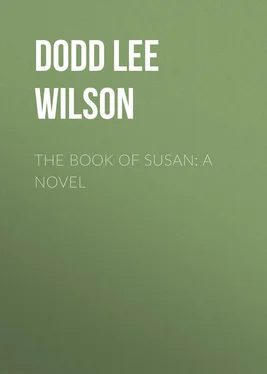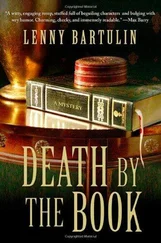Lee Dodd - The Book of Susan - A Novel
Здесь есть возможность читать онлайн «Lee Dodd - The Book of Susan - A Novel» — ознакомительный отрывок электронной книги совершенно бесплатно, а после прочтения отрывка купить полную версию. В некоторых случаях можно слушать аудио, скачать через торрент в формате fb2 и присутствует краткое содержание. Жанр: foreign_antique, foreign_prose, на английском языке. Описание произведения, (предисловие) а так же отзывы посетителей доступны на портале библиотеки ЛибКат.
- Название:The Book of Susan: A Novel
- Автор:
- Жанр:
- Год:неизвестен
- ISBN:нет данных
- Рейтинг книги:4 / 5. Голосов: 1
-
Избранное:Добавить в избранное
- Отзывы:
-
Ваша оценка:
- 80
- 1
- 2
- 3
- 4
- 5
The Book of Susan: A Novel: краткое содержание, описание и аннотация
Предлагаем к чтению аннотацию, описание, краткое содержание или предисловие (зависит от того, что написал сам автор книги «The Book of Susan: A Novel»). Если вы не нашли необходимую информацию о книге — напишите в комментариях, мы постараемся отыскать её.
The Book of Susan: A Novel — читать онлайн ознакомительный отрывок
Ниже представлен текст книги, разбитый по страницам. Система сохранения места последней прочитанной страницы, позволяет с удобством читать онлайн бесплатно книгу «The Book of Susan: A Novel», без необходимости каждый раз заново искать на чём Вы остановились. Поставьте закладку, и сможете в любой момент перейти на страницу, на которой закончили чтение.
Интервал:
Закладка:
Lee Wilson Dodd
The Book of Susan: A Novel
THE FIRST CHAPTER
I
IT happens that I twice saw Susan's mother, one of those soiled rags of humanity used by careless husbands for wiping their boots; but Susan does not remember her. John Stuart Mill studied Greek at three, and there is a Russian author who recalls being weaned as the first of his many bitter experiences. Either Susan's mental life did not waken so early or the record has faded. She remembers only the consolate husband, her father; remembers him only too well. The backs of his square, angry-looking hands were covered with an unpleasant growth of reddish bristles; his nostrils were hairy, too, and seemed formed by Nature solely for the purpose of snorting with wrath. It must not be held against Susan that she never loved her father; he was not created to inspire the softer emotions. Nor am I altogether certain just why he was created at all.
Nevertheless, Robert Blake was in his soberer hours – say, from Tuesdays to Fridays – an expert mechanic, thoroughly conversant with the interior lack of economy of most makes of automobiles. He had charge of the repair department of the Eureka Garage, New Haven, where my not-too-robust touring car of those primitive days spent, during the spring of 1907, many weeks of interesting and expensive invalidism. I forget how many major operations it underwent.
It was not at the Eureka Garage, however, that I first met Bob Blake. Nine years before I there found him again, I had defended him in court – as it happens, successfully – on a charge of assault with intent to kill. That was almost my first case, and not far – thank heaven – from my last. Bob's defense, I remember, was assigned to me by a judge who had once borrowed fifty dollars from my father, which he never repaid; at least, not in cash. There are more convenient methods. True, my father was no longer living at the time I was appointed to defend Bob; but that is a detail.
Susan was then four years old. I can't say I recall her, if I even laid eyes on her. But Mrs. Bob appeared as a witness, at my request – it was all but her final appearance, poor woman; she died of an embolism within a week – and I remember she told the court that a kinder husband and father than Bob had never existed. I remember, too, that the court pursed its lips and the gentlemen of the jury grinned approvingly, for Mrs. Bob could not easily conceal something very like the remains of a purple eye, which she attributed to hearing a suspicious noise one night down cellar, a sort of squeaking noise, and to falling over the cat on her tour of investigation – with various circumstantial minutiæ of no present importance.
The important thing is, that Bob went scot-free and was as nearly grateful as his temperament permitted. His assault – with an umbrella stand – had been upon a fellow reveller of no proved worth to the community, and perhaps this may have influenced the jury's unexpected verdict.
Of Susan herself my first impression was gained at the Eureka Garage. Bob Blake, just then, was lying beneath my car, near which I hovered listening to his voluble but stereotyped profanity. He had lost the nut from a bolt, and, unduly constricted, sought it vainly, while his tongue followed the line of least resistance. I was marveling at the energy of his wrath and the poverty of his imagination, when I became aware of a small being beside me, in plaid calico. She had eager black eyes – terrier's eyes – in a white, whimsical little face. One very long and very thin black pigtail dangled over her left shoulder and down across her flat chest to her waist, where it was tied with a shoe string and ended lankly, without even the semblance of a curl. In her right hand she bore a full dinner pail, and with her left thumb she pointed toward the surging darkness beneath my car.
"Say, mister, please," said the small being, "if I was to put this down, would you mind telling him his dinner's come?"
"Not a bit," I responded. "Are you Bob's youngster?"
"I'm Susan Blake," she answered; and very softly placed the dinner pail on the step of the car.
"Why don't you wait and see your father?" I suggested. "He'll come up for air in a minute."
"That's why I'm going now," said Susan.
Whereupon she gave a single half skip – the very ghost of a skip – then walked demurely from me and out through the great door.
II
Bob Blake, in those days, lived in a somewhat dilapidated four-room house, off toward the wrong end of Birch Street. His family arrangements were peculiar. He had never married again; but not very long after his wife's death a dull-eyed, rather mussy young woman, with a fondness for rouge pots, had taken up her abode with him – to the scandal and fascination of the neighborhood. It was an outrage, of course! With a child in the house, too! Something ought to be done about it!
Yet, oddly enough, nothing that much worried Bob ever was done about it, reckoning the various shocked-and-grieved forms of conversation as nothing. As he never tired of asserting, Bob didn't give a damn for the cackle of a lot of hens. He guessed he knew his way about; and so did Pearl. Let the damned hens cackle their heads off; he was satisfied!
And so, eventually, I am forced to believe, were the hens. In the earlier days of the scandal there was much clitter-clatter of having the law on him, serving papers, and the like; but, as hen cackle sometimes will, it came to precisely naught. Nor am I certain that, as the years passed, the neighborhood did not grow a little proud of its one crimson patch of wickedness; I am reasonably certain, indeed, that more than one drab life took on a little borrowed flush of excitement from its proximity.
Of course no decent, God-fearing woman would ever greet either Bob or Pearl; but every time one passed either of them without a nod or a "How's things to-day?" it gave one something to talk about, at home, or over any amicable fence.
As for the men, they too were forbidden to speak; but men, most of them, are unruly creatures if at large. You can't trust them safely five minutes beyond the sound of your voice.
There was even one man, old Heinze, proprietor of the Birch Street grocery store, who now and then cautiously put forth a revolutionary sentiment.
"Dey lifs alvays togedder – like man unt vife – nod? Vere iss der diffurunz, Mrs. Shay?"
"Shame on you for them words, Mr. Heinze!"
" Aber " – with a slow, wide smile – "vere iss der diffurunz, Mrs. Shay? I leaf id to you?"
That Pearl and Bob lived always together cannot be denied, and perhaps they also lived as some men and their lawful wives are accustomed to live – off toward the wrong end of city streets; and occasionally, no doubt, toward the right end of them as well. Midweek, things wore along dully enough, but over Sunday came drink and ructions. Susan says she has never been able to understand why Sunday happens to be called a day of rest. The day of arrest, she was once guilty of naming it.
Bob's neighbors, I fear, were not half so scandalized by his week-end drunkenness as by what Mrs. Perkins – three doors nearer the right end of Birch Street – invariably called his "brazen immorality." Intoxication was not a rare vice in that miscellaneous block or two of factory operatives. Nor can it be said that immorality, in the sense of Mrs. Perkins, was so much rare as it was nervously concealed. The unique quality of Bob's sin lay in its brazen element; that was what stamped him peculiarly as a social outlaw.
Bob accepted this position, if sober, with a grim disregard. He had a bitter, lowering nature at best, and when not profane was taciturn. As for Pearl, social outlawry may be said to have been her native element. She had a hazy mind in a lazy body, and liked better than most things just to sit in a rocking-chair and polish her finger nails, as distinguished from cleaning them. Only the guiltless member of this family group really suffered from its low social estate, but she suffered acutely. Little Susan could not abide being a social outlaw.
Читать дальшеИнтервал:
Закладка:
Похожие книги на «The Book of Susan: A Novel»
Представляем Вашему вниманию похожие книги на «The Book of Susan: A Novel» списком для выбора. Мы отобрали схожую по названию и смыслу литературу в надежде предоставить читателям больше вариантов отыскать новые, интересные, ещё непрочитанные произведения.
Обсуждение, отзывы о книге «The Book of Susan: A Novel» и просто собственные мнения читателей. Оставьте ваши комментарии, напишите, что Вы думаете о произведении, его смысле или главных героях. Укажите что конкретно понравилось, а что нет, и почему Вы так считаете.












